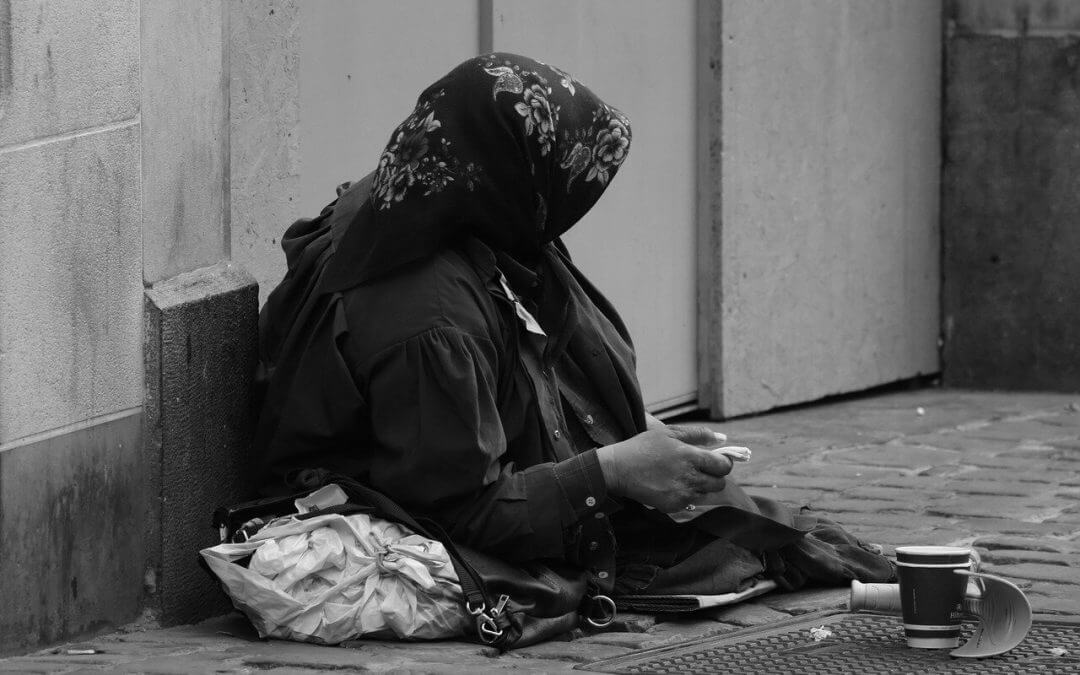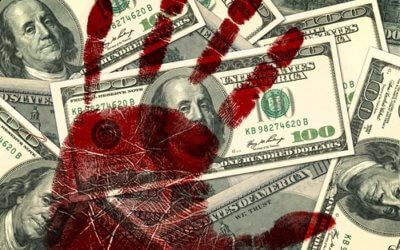Under the CARES Act, to qualify for loans as part of the PPP, businesses generally must have fewer than 500 employees. However, due to the SBA’s “affiliation rules,” all employees across a private equity firm’s portfolio are included in calculating a business’s employment total. As a result, the majority of Private Equity portfolio companies are above the qualifying threshold.
Private Equity companies are crying foul and claiming that without access to the PPP, there will be layoffs. In a recent survey of over 1,000 members of the Association for Corporate Growth, 92% said the exclusion from PPP would result in layoffs, and 60% said they anticipate laying off workers in the next two weeks. Private Equity is asking for the affiliation rules to be relaxed so that they can benefit from the PPP. While I do not doubt that these companies are feeling the squeeze from COVID-19 and that their companies are suffering, I think we need to put this claim in context.
Private Equity Model
Private Equity has long claimed that it is a superior business model because of greater efficiencies and management effectiveness due to their skills (after all, they are the Masters of the Universe), resulting in increased productivity and profitability of their portfolio companies.
However, when comparing a private equity run firm vs. the average business owner, it is worth noting that the Private Equity model is to acquire the company with a large amount of debt, usually over 50%. When one considers the rolling of equity by the prior owner, the PEG may be contributing only 30% of the equity. Furthermore, the Private Equity firms charge their portfolio companies fees for their “excellent skills,” which are high. As quickly as possible, Private Equity seeks to refinance the company by taking on more debt and paying out distributions to the owners. The result of this model is that Private Equity gets its significant returns by saddling a company with excessive debt, which reduces the company’s ability to withstand economic shocks. As I have pointed out elsewhere, data is now showing that Private Equity portfolio companies are:
-
Less profitable than non-PE companies due to their debt load;
-
More likely to go bankrupt;
-
Invest less in business due to the limitations of capital
-
More likely to move production and manufacturing to low costs areas, i.e., China
-
More likely to cut staff to protect profit margins.
To add further fuel to the fire, Private Equity managers manage to get capital gains treatment on the income they receive from their portfolio companies, the “Carried Interest Rule.” This quirk of the tax code combined with limited downside risk, incentivizes Private Equity managers to take more significant risks as they make more money, pay lower taxes, and have little chance (other than the ability to raise a new fund).
The CARES Act
There are arguments that large companies that used the benefits from the Tax Cuts and Jobs Act to increase pay to their management and undertake share repurchases should not receive government bailouts without some penalty or equity kicker for the government. I agree with this argument. Once more, it appears that our “capitalist model” is a model where those that are wealthy and powerful get all the upside of their high-risk activities, and society gets all the downside. In 2008, the bankers had received enormous bonuses for putting together the products, which nearly brought the entire edifice, and all of us had to pay the bill to bail them out. To justify their behavior, they quickly pointed to the poor subprime borrowers as the culprits, but it was the banks. One of the failings of the banks and rating agencies in the last recession was the belief that property prices could not fall across the country. That failure was incredibly expensive!
Now we have corporate executives who have benefited over the last ten years from massive bonuses and options payouts seeking to have all us to bail them out for failing to invest in their businesses and keep sufficient reserves for the proverbial rainy day. Again there has been a failure by the management of many companies to consider “Black Swan” events that could severely disrupt their business. While I know that most will argue that they never foresaw COVID appearing, there were warnings. If you run a large multinational company, they pay you the big bucks to consider these events and ensure that you have the resources available to withstand them.
Now, as the crisis spreads, it is Private Equity’s turn to pass the begging bowl and ask all of us to bail them out. Using the threat of significant layoffs, they are conveniently ignoring the massive returns they have made by overburdening their portfolio companies with debt. Also, as I and others have pointed out, Private Equity has been quick to let portfolio companies fail and put the pension liabilities on all of us by having the Pension Benefit Guaranty Corporation pick up the tab.
As employees lose their jobs and are suffering, it hard to justify a bailout to the group that pays a lower income tax rate through lobby fund exemption. Especially galling is when the likes of Stephen A. Schwarzman, CEO of Blackstone Group, to compared removing the Carried Interest loophole to the German Invasion of Poland. Sounds a little like “Qu’ils mangent de la brioche“ to me.
According to Fortune, in January, “Private equity firms are sitting on $1.5 trillion in unspent cash, and looking to raise more.” If Private Equity has that much dry powder, I would argue that they should use the capital to save their portfolio companies. If they don’t want to keep them, then we will see if Private Equity is more like the Masters of the Universe or The Emperor’s New Clothes.
If Private Equity is genuinely the Masters of the Universe, they should be willing to fund their portfolio companies and help them to survive to become the greatest in their sectors when this is over. Poorly managed companies will fail, and good ones will become market leaders for the next decade or more. As market leaders, they should realize higher than average returns, which is a bonus to their owners. However, as I pr
eviously noted, if your business model is purely generating returns for shareholders, it is hard to rally the “troops” and get them behind you to save the organization.
The President has referred to the COVID crisis as a “war.” I look forward to the answer to “What did you do during the war?” Right now, it appears the answer will be, “I laid off everyone and asked for a government bailout to protect my returns.”
I am constantly reminded by many that as someone from Europe, I need to understand that the United States is a capitalistic country that benefits those that take risks. I have no problem with capitalism, but it continues to appear that the U.S. is a capitalistic country for the poor, and a socialistic one for the rich. If the U.S. is to be genuinely capitalistic, then Private Equity needs to pay the price for its gluttony and business leadership dictated by spreadsheets.
Copyright (c) 2020, Marc A. Borrelli
Recent Posts
Align and Thrive: The Importance of Organizational Alignment and Agility
Discover the importance of organizational alignment and agility in this blog post. Learn how establishing a strong CORE and building a strategy around it can lead to sustainable growth and success. Find out how alignment and agility empower your organization to thrive in an ever-changing business landscape.
How to Achieve Smart Time Management: 10 Tips for Busy Professionals
When you are a busy professional running your own business, it can often feel like there aren’t enough hours in the day to accomplish everything. Being strategic with your time is the best (and possibly the only) way to achieve all of your daily tasks. If you are...
5 Strategic Leadership Skills Every Manager Needs
So often, people view leadership as a talent: you’re either born with this quality or you’re not. However, this is not always the case! In reality, good leadership is made up of skills, and anyone can learn how to improve. Some people may pick up leadership attributes...
How the Sellability Score is Calculated: The Ultimate Guide
Do you have questions about how to calculate your business’s sellability score? Whether you’re looking to sell your business in the near future or years from now, understanding your sellability score will help you thrive. The sellability score identifies the...
The Top 5 Benefits of the Entrepreneurial Operating System
As an entrepreneur running your own business, you know there are bumps in the road and struggles that both you and your business will face over time. However, with the right people and tools at your disposal, you can anticipate what’s coming, plan for it, and continue...
5 Ways to Use Email Automation to Boost Traffic
Every single business in the world wants to evolve and grow. This will happen using a variety of techniques and strategies. In 2022, digital marketing is more than a household name, and most companies will adopt at least a few ideas when long-term planning and coming...
6 Questions To Ask A Potential Business Coach Before Hiring Them
Many entrepreneurs consider executive business coaching when they start struggling on their professional path. A small business coach is an experienced professional mentor who educates, supports, and motivates entrepreneurs. They will listen to your concerns, assess...
3 Ways Proper Long Term Strategic Planning Helps Your Business
Dreams turn into goals when they have a foundation of long-term strategic planning supporting them. They become reality when the ensuing strategic implementation plan is executed properly. With Kaizen Solutions as their strategic planning consultant, small and...
What is a Peer Group, and How Can it Improve Your Career?
If you are a CEO or key executive who has come to a crossroads or crisis in your career, you'll gain valuable insights and solutions from a peer group connection more than anywhere else. But what is a peer group, and how can that statement be made with so much...
Profit and Revenue are Lousy Core Values
As I mentioned last week, I am down with COVID and tired, so spending more time reading rather than working. I read Bill Browder's Freezing Order this weekend, and I highly recommend it. However, at the end of the book, Browder says that oligarchs, autocrats, and...











Everything is very open with a precise description of the issues. It was truly informative. Your website is very useful. Thanks for sharing!
Thank you for your sharing. I am worried that I lack creative ideas. It is your article that makes me full of hope. Thank you. But, I have a question, can you help me?
batmanapollo.ru
ГГУ имени Ф.Скорины
What i do not realize is if truth be told how you’re not really a lot more well-favored than you may be right now. You are so intelligent. You recognize therefore significantly on the subject of this topic, produced me personally consider it from numerous various angles. Its like men and women aren’t interested until it’s something to accomplish with Lady gaga! Your own stuffs great. All the time take care of it up!
These are in fact wonderful ideas in concerning blogging. You have touched some pleasant points here. Any way keep up wrinting.
I constantly spent my half an hour to read this webpage’s articles or reviews daily along with a cup of coffee.
I simply could not leave your web site prior to suggesting that I really enjoyed the standard information a person supply for your visitors? Is going to be back incessantly in order to check out new posts
Good respond in return of this issue with solid arguments and explaining all concerning that.
Normally I do not read article on blogs, however I wish to say that this write-up very pressured me to try and do so! Your writing taste has been amazed me. Thank you, quite great article.
Thank you for another wonderful article. Where else may just anyone get that kind of information in such a perfect means of writing? I have a presentation next week, and I am at the look for such information.
Terrific article! This is the type of information that are meant to be shared around the internet. Disgrace on the seek engines for now not positioning this publish upper! Come on over and discuss with my web site . Thank you =)
Здесь вы найдете разнообразный видео контент камеры
отеля ялта интурист
It’s not my first time to visit this site, i am visiting this site dailly and get good data from here every day.
This is very interesting, You are an overly professional blogger. I have joined your feed and look ahead to looking for more of your magnificent post. Also, I have shared your site in my social networks
you are in point of fact a good webmaster. The site loading speed is incredible. It sort of feels that you are doing any unique trick. Moreover, The contents are masterpiece. you have performed a wonderful task in this matter!
Good post however I was wanting to know if you could write
a litte more on this topic? I’d be very grateful if you could elaborate
a little bit more. Many thanks!
mexican border pharmacies shipping to usa: cmqpharma.com – buying from online mexican pharmacy
mexico drug stores pharmacies: mexican pharmacy online – best online pharmacies in mexico
mexican border pharmacies shipping to usa
https://cmqpharma.online/# п»їbest mexican online pharmacies
pharmacies in mexico that ship to usa
mexico drug stores pharmacies
https://cmqpharma.com/# mexican online pharmacies prescription drugs
reputable mexican pharmacies online
Hello, I believe your site could be having browser compatibility issues. When I look at your web site in Safari, it looks fine but when opening in IE, it has some overlapping issues. I just wanted to give you a quick heads up! Apart from that, great blog!
Франшиза автомойки – это возможность стать частью успешной сети с готовым бизнес-планом и маркетинговой поддержкой на всех этапах работы.
“Франшиза автомойки” от нашей сети – это готовое решение для старта вашего бизнеса. Мы предлагаем полную поддержку и профессионализм.
Предлагаем строительство автомоек под ключ по индивидуальным проектам. Все работы выполняются в срок и с гарантией.
1Франшиза автомойки от нашей команды – это успешный бизнес с минимальными инвестициями. Давайте станем партнерами!
Ищете надежного партнера для строительства автомойки? Мы предложим индивидуальные решения и полное сопровождение проекта от начала до конца.
“Мойка самообслуживания под ключ” привлекает владельцев автомобилей своей оперативностью и качеством. Инвестируйте в перспективу еще сегодня!
mexico drug stores pharmacies: cmq mexican pharmacy online – purple pharmacy mexico price list
purple pharmacy mexico price list
https://cmqpharma.online/# mexico drug stores pharmacies
mexican pharmaceuticals online
After checking out a number of the blog posts on your website, I truly like your way of blogging. I added it to my bookmark website list and will be checking back soon. Please check out my web site as well and let me know what you think.
Автомойка под ключ – это быстрый старт в автомобильном бизнесе. Наши специалисты помогут вам во всём.
Строительство автомойки под ключ — идеальное решение для бизнеса. От проекта до запуска, мы обеспечим все этапы работ.
Строительство автомойки требует тщательного планирования и учета всех нормативов. Опытные специалисты помогут реализовать проект любой сложности с гарантией качества.
Заказывая автомойку под ключ, вы экономите время и деньги. Наши специалисты возьмут на себя все этапы работ, от разработки до ввода объекта в эксплуатацию.
“Строительство автомойки под ключ” гарантирует высокую отдачу от инвестиций. Начните свой путь к успешному бизнесу с нами!
Автомойка под ключ – это быстрый старт в автомобильном бизнесе. Наши специалисты помогут вам во всём.
“Автомойка самообслуживания под ключ” – оптимизированная, экологичная и прибыльная модель бизнеса. Вкладывайтесь в современные решения с нами!
purple pharmacy mexico price list [url=http://foruspharma.com/#]mexico pharmacy[/url] mexican pharmaceuticals online
pharmacy website india: mail order pharmacy india – cheapest online pharmacy india
top 10 online pharmacy in india: Online medicine home delivery – Online medicine home delivery
http://foruspharma.com/# medicine in mexico pharmacies
india pharmacy: india online pharmacy – best online pharmacy india
canadian drug pharmacy [url=https://canadapharmast.com/#]canadian pharmacy no scripts[/url] pharmacy canadian
mexican rx online: best online pharmacies in mexico – mexico drug stores pharmacies
mexican rx online: best online pharmacies in mexico – mexican border pharmacies shipping to usa
Online medicine order: online shopping pharmacy india – india pharmacy
http://indiapharmast.com/# Online medicine home delivery
indian pharmacy [url=http://indiapharmast.com/#]pharmacy website india[/url] top 10 pharmacies in india
best online pharmacy india: india pharmacy mail order – indian pharmacy paypal
reputable indian pharmacies: mail order pharmacy india – indianpharmacy com
legitimate canadian pharmacies: canadian pharmacy no rx needed – canadian pharmacy
india pharmacy [url=https://indiapharmast.com/#]buy prescription drugs from india[/url] Online medicine order
buying prescription drugs in mexico: buying from online mexican pharmacy – mexican drugstore online
legit canadian online pharmacy: canadian pharmacies online – best online canadian pharmacy
https://canadapharmast.com/# pet meds without vet prescription canada
https://clomiddelivery.pro/# can you get cheap clomid no prescription
paxlovid generic [url=https://paxloviddelivery.pro/#]Paxlovid buy online[/url] п»їpaxlovid
https://ciprodelivery.pro/# buy cipro online without prescription
amoxicillin order online no prescription: amoxicillin no prescription – amoxil pharmacy
http://amoxildelivery.pro/# amoxicillin 500 mg where to buy
doxycycline 50 mg cost [url=http://doxycyclinedelivery.pro/#]buy generic doxycycline[/url] doxycycline 75 mg
http://amoxildelivery.pro/# how to get amoxicillin over the counter
https://paxloviddelivery.pro/# paxlovid pill
amoxicillin 500 mg tablet price [url=http://amoxildelivery.pro/#]amoxicillin 500mg price[/url] amoxicillin 1000 mg capsule
https://doxycyclinedelivery.pro/# doxycycline hyclate 100mg price
paxlovid buy: п»їpaxlovid – Paxlovid buy online
http://clomiddelivery.pro/# where can i get clomid prices
http://ciprodelivery.pro/# buy cipro
doxycycline 400 mg brand name [url=https://doxycyclinedelivery.pro/#]doxycycline tablets in india[/url] doxycycline 300 mg tablet
buy cipro no rx: buy cipro online without prescription – cipro ciprofloxacin
https://paxloviddelivery.pro/# paxlovid generic
https://doxycyclinedelivery.pro/# doxycycline prescription cost
amoxicillin 500 tablet [url=http://amoxildelivery.pro/#]generic amoxil 500 mg[/url] can you buy amoxicillin over the counter
http://clomiddelivery.pro/# order cheap clomid without a prescription
ciprofloxacin order online: where can i buy cipro online – buy cipro online canada
https://clomiddelivery.pro/# how can i get clomid price
п»їcipro generic [url=https://ciprodelivery.pro/#]ciprofloxacin generic[/url] ciprofloxacin generic price
https://clomiddelivery.pro/# can i get cheap clomid without prescription
https://doxycyclinedelivery.pro/# doxycycline 100mg tablets coupon
how to get clomid without prescription [url=https://clomiddelivery.pro/#]where can i get clomid without prescription[/url] can you get generic clomid without rx
https://clomiddelivery.pro/# can you buy generic clomid for sale
buy ciprofloxacin: buy cipro without rx – cipro 500mg best prices
http://clomiddelivery.pro/# how to buy clomid price
https://amoxildelivery.pro/# can i purchase amoxicillin online
paxlovid for sale [url=http://paxloviddelivery.pro/#]paxlovid buy[/url] paxlovid india
buy generic doxycycline: doxycycline uk – doxycycline over the counter india
paxlovid covid: paxlovid buy – paxlovid cost without insurance